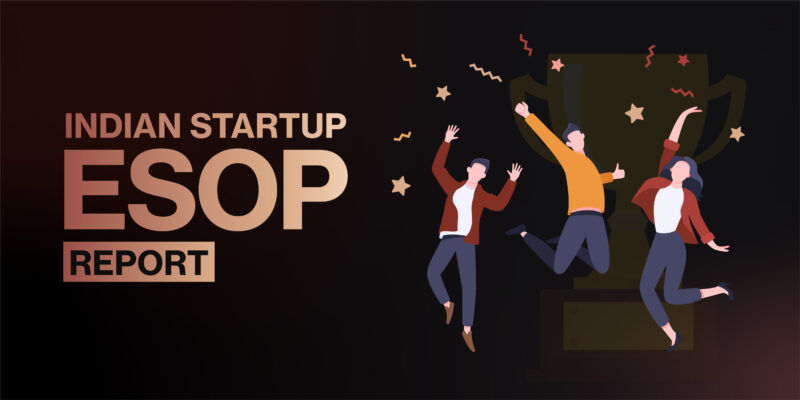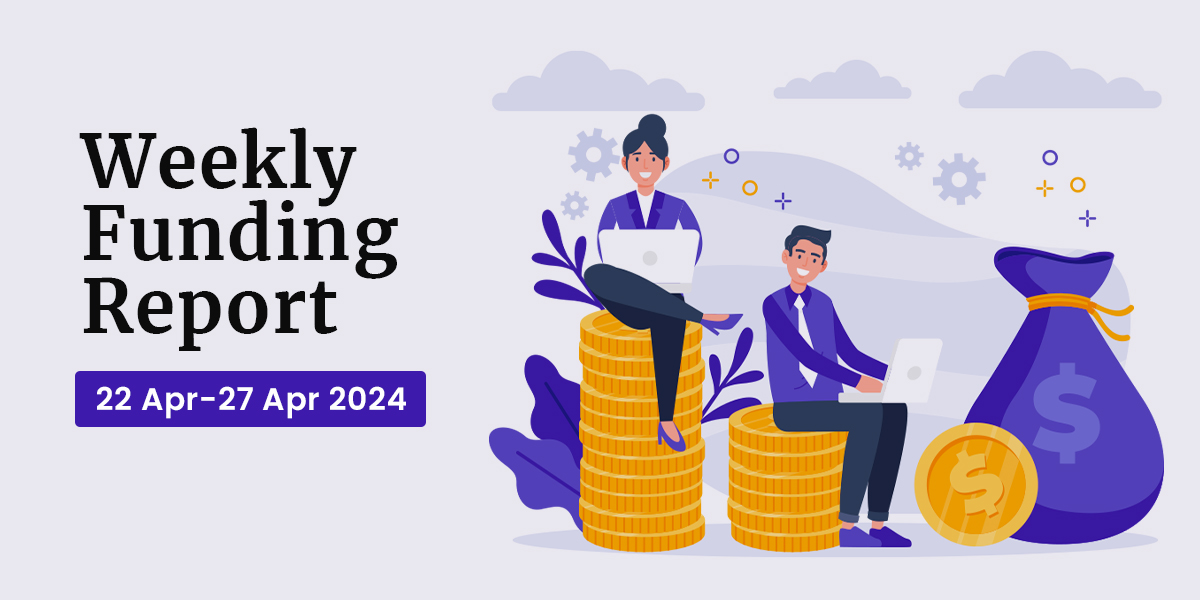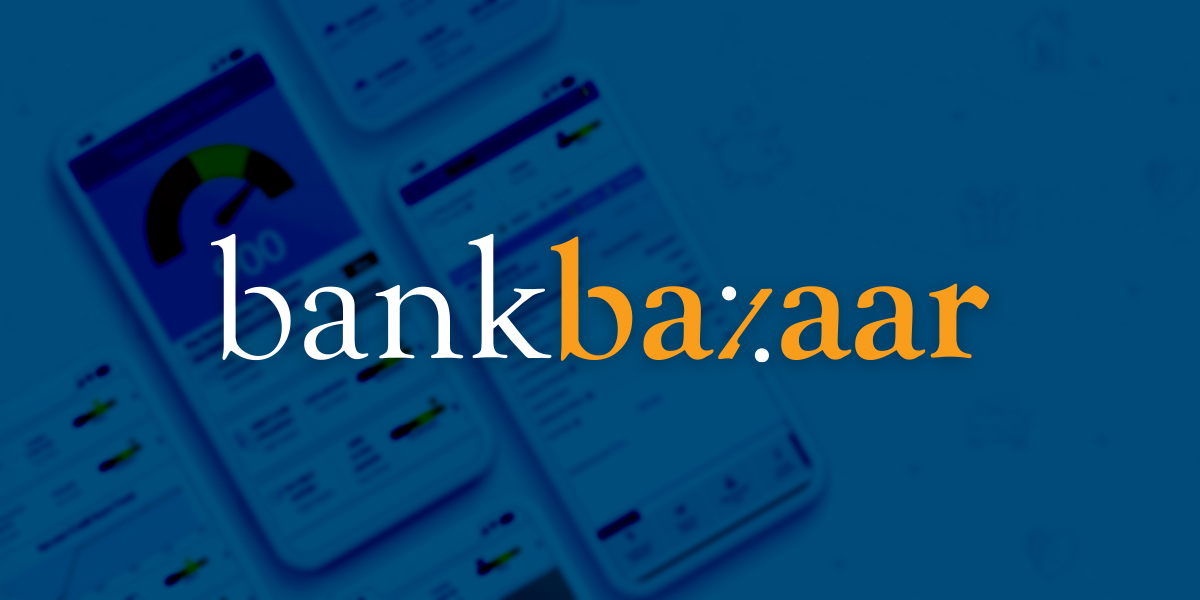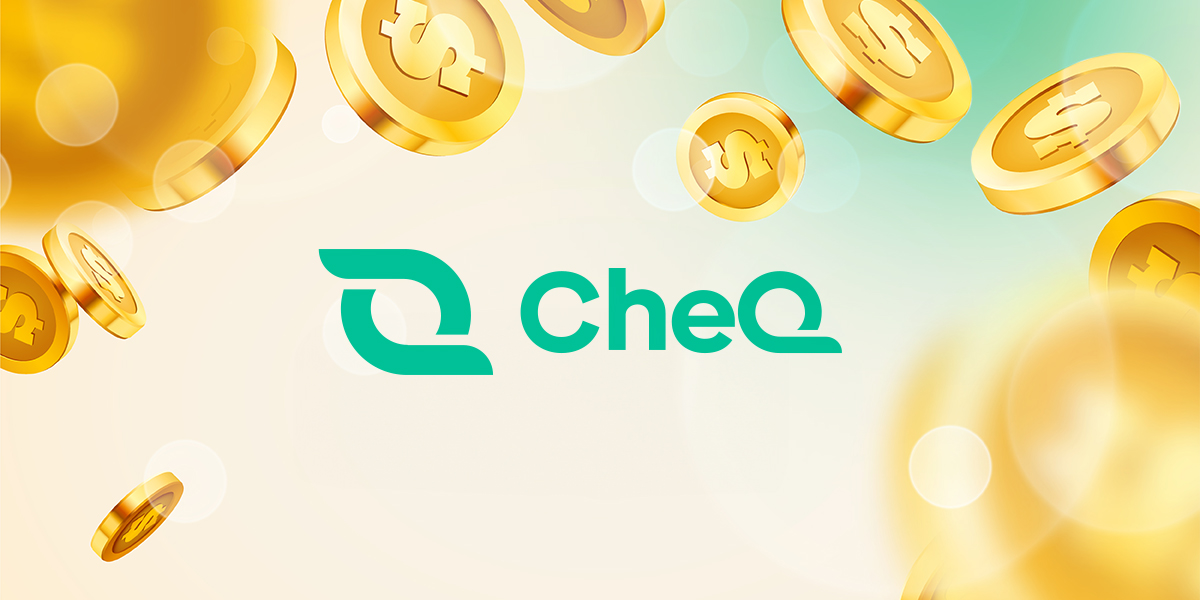After a record number of employee stock (ESOP) buybacks, liquidity and payout events over the last few years, Indian startups saw a sharp decline in this trend in the first few months of 2023. But, the recent event of a $700 million worth ESOP payout at e-commerce marketplace Flipkart has pushed this year’s numbers to be one of the biggest in the industry — even as it might not be the true reflection of the overall industry.
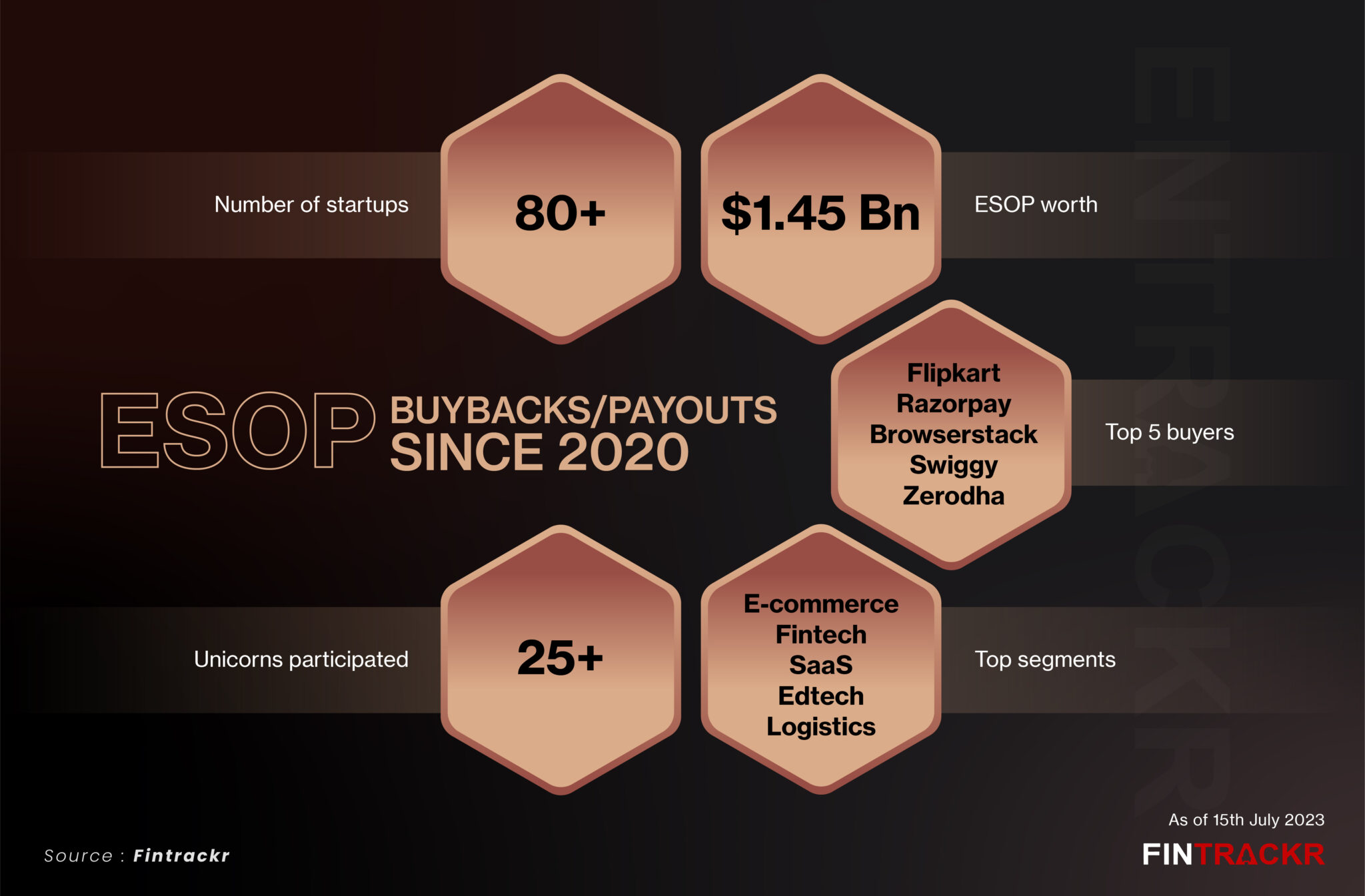
As per data compiled by Fintrackr, more than 80 startups have bought back ESOPs worth $1.45 billion since 2020. Notably, in a perfect illustration of the 80/20 rule, 80% of the total buybacks were done by 20% of the startups. Flipkart alone accounted for more than 50% of the entire buyback since 2020.
Last year, 25 startups announced ESOP buybacks scheme worth some $200 million — a steep fall from $440 million in 2021. In 2020, the value of ESOP buybacks stood at $50 million. While the total value of ESOP buybacks stood at barely $50 million till first half of 2023, Flipkart’s payout ramped up the total to a whopping $750 million. This was a part of compensation for the loss of value after the PhonePe spin off and it is the largest one-time cash payout at any startup operating in India. To recall, the Walmart-owned company bought back employees’ stock worth $80.5 million in 2021, $100 million in 2019 and $500 million in 2018.
[Year-on-Year trend]
Entrackr has compiled data since 2020 which reflects the meteoric rise in buyback events in 2021 when Indian startups raised a record $38 billion in funding. The funding slowdown in 2022 also impacted such events as the stock buyback amount reduced to $200 million where 25 startups took part. We have excluded companies that went public during the period.
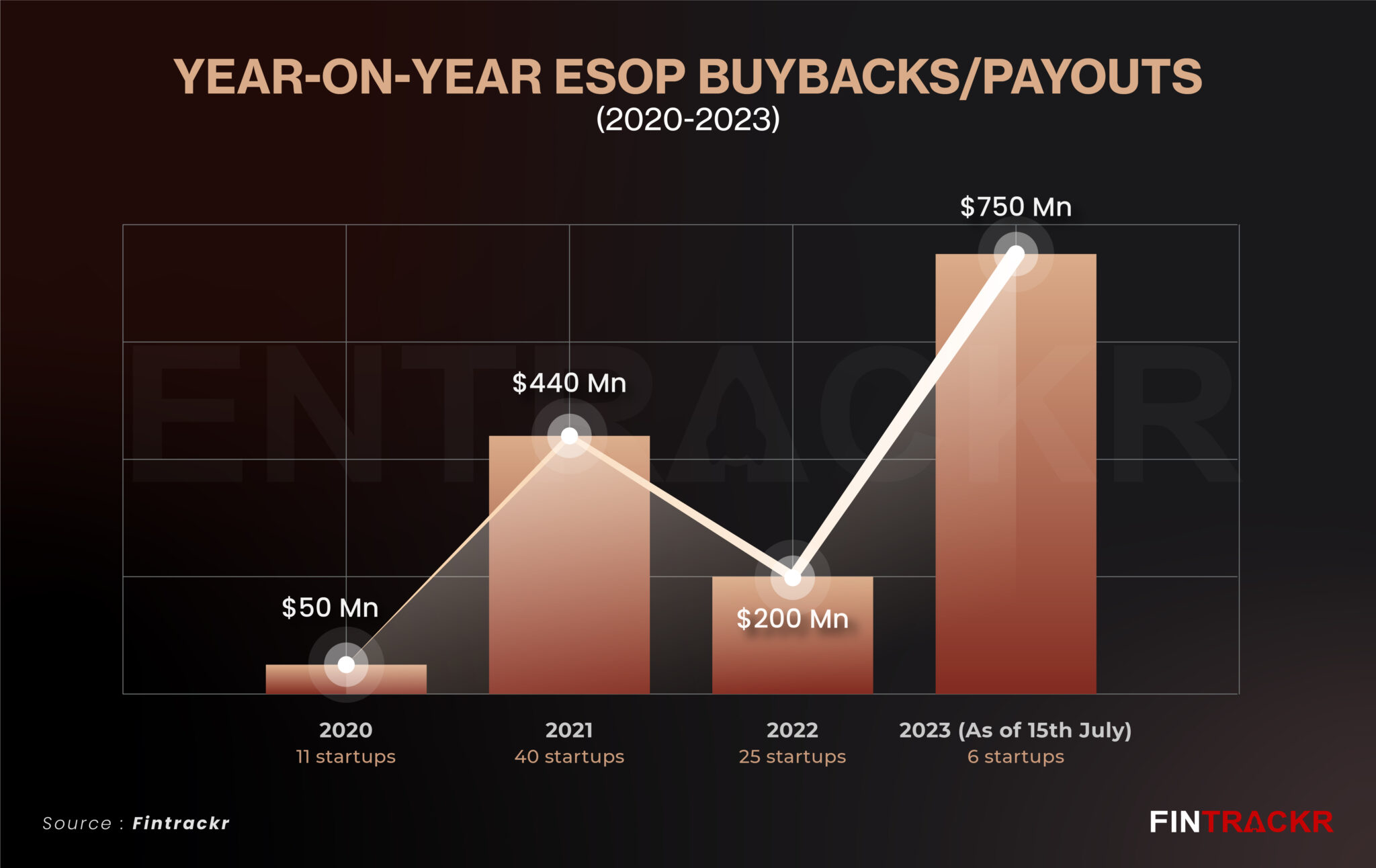
[2023 vs 2022]
Besides Flipkart, only data analytics company Tredence, edtech company Sunstone, logistics startup Porter, hygiene company Sirona and gaming company WinZo announced their stock buyback plan in the ongoing calendar year. The amount of ESOP buyback by the top 10 companies between 2020 and 2023 till July 15 can be seen in the chart below.
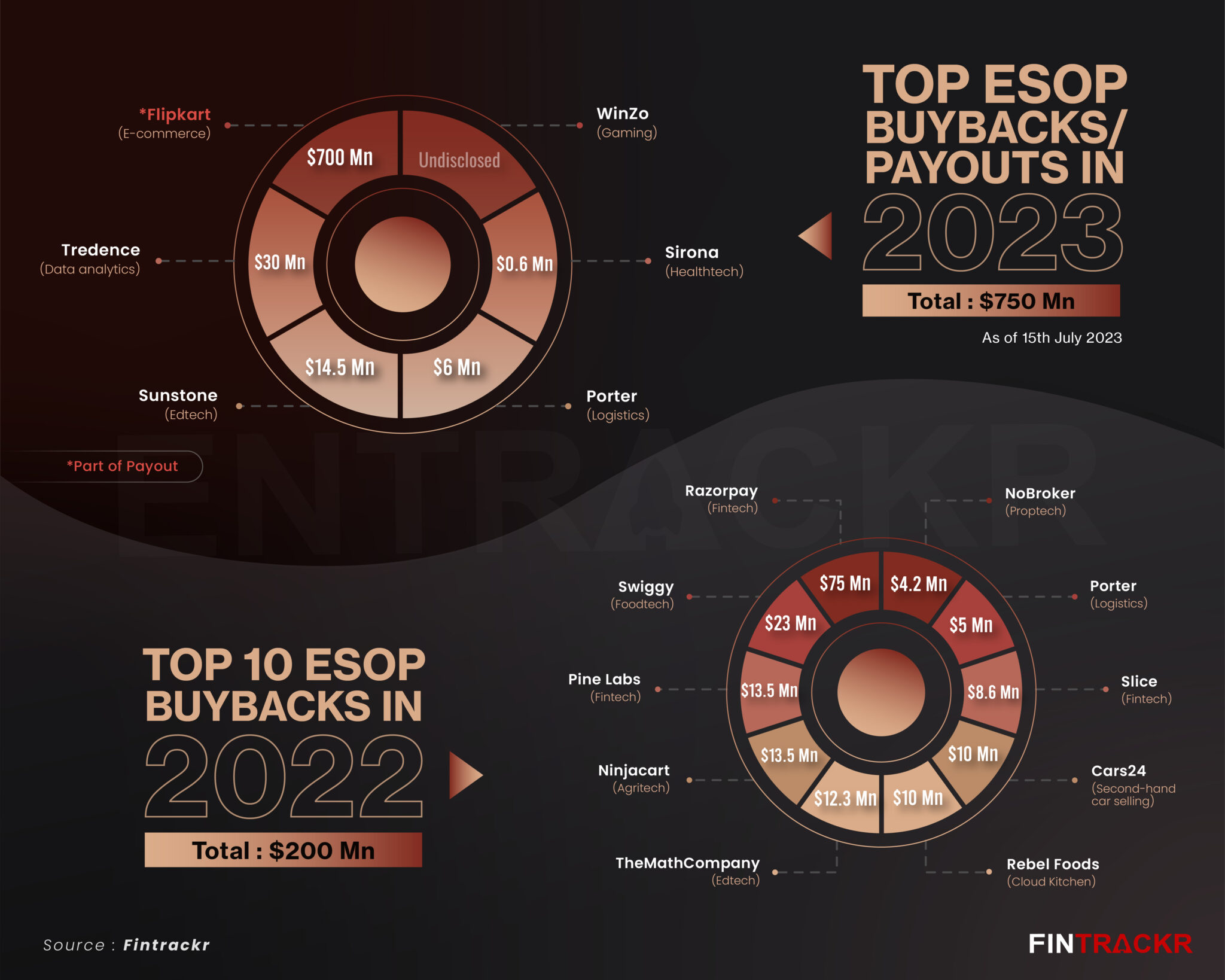
In 2022, fintech unicorn Razorpay became the biggest wealth creator after a $75 million worth ESOP liquidation program. Foodtech company Swiggy also announced a $23 million worth ESOP liquidation program after attaining decacorn status. In the top 10 list, Ninjacart, Pine Labs, Rebel Foods, Cars24, TheMathCompany, Slice, NoBroker, and Porter made their entry.
The full report can be downloaded here.
Segment wise, fintech, SaaS and agritech dominated the chart in 2022 while no startups from these segments announced employee stock buyback in 2023. Edtech, one of the highest funded segments, saw fewer buybacks during the 2022-23 period which includes LEAD, TheMathCompany and Sunstone.
[2021 vs 2020]
The year 2021 was the best period for buyback events when Flipkart, Swiggy, PhonePe, Udaan, ShareChat, Razorpay, CRED, Browserstack, Meesho, Spinny, Zerodha, Unacademy, upGrad announced ESOP liquidity program worth more than $440 million. In 2020, Zerodha, Swiggy, Unacademy, FirstCry, Urban Company and Meesho facilitated a buyback scheme for their employees. This period belonged to fintech, edtech, e-commerce and SaaS companies.
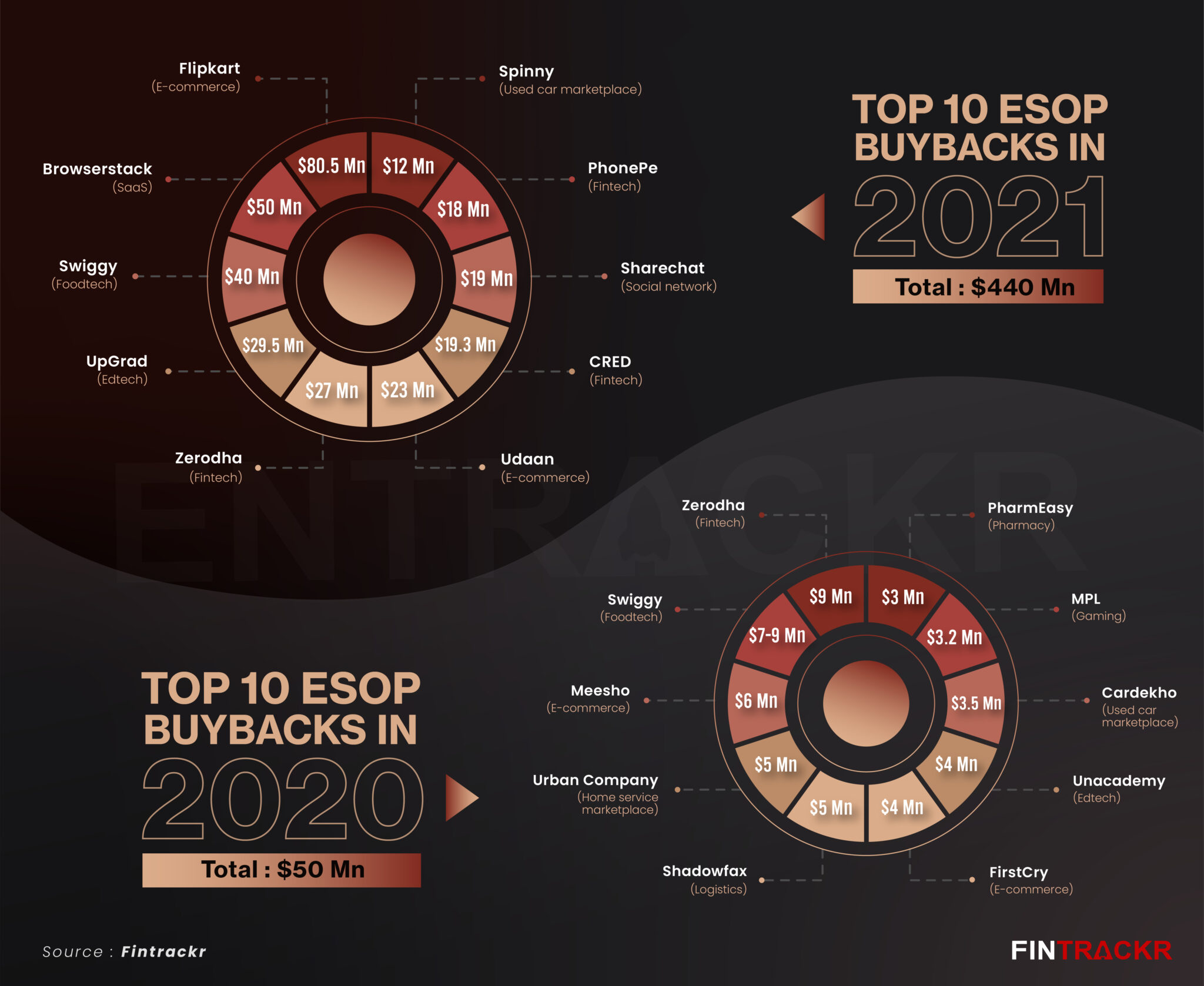
Out of 80 plus buybacks, unicorns participated in more than 25 deals. Since 2020, Flipkart, Razorpay, Zerodha, Swiggy, Unacademy, and CRED allowed their employees to sell their vested shares more than once.
Unlike 2021-2022, when most of the new age unicorns participated in the buyback event, they took a backseat in 2023. This can be attributed to funding winter, mass layoffs and overall slowdown across the startup space.
[Conclusion]
The high share of a few startups clearly indicates that the ESOP mechanism, even as it makes positive headlines, has a long way to go. Besides buybacks, there are many other ways startups will have to look at to keep employees aligned with the firm’s goals, as ESOP encashment remains a preserve of mostly unicorns and subject to fresh fundraises. While the concept and its workings have been imported along with the way the VC ecosystem works, it might be time for some local customisations today, especially in smaller, profitable startups.



